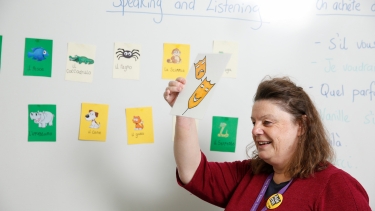Education and Teaching Overview
Embark on a fulfilling journey in education at Hertfordshire International College (HIC), where your passion for teaching and transforming lives takes centre stage. Our education Pre-Master’s programme offers a holistic approach, preparing you to navigate the complexities of modern teaching and learning. Whether you dream of educating young children or making an impact in unconventional settings, HIC is your gateway to a Master’s at the University of Hertfordshire and a rewarding career in education.

